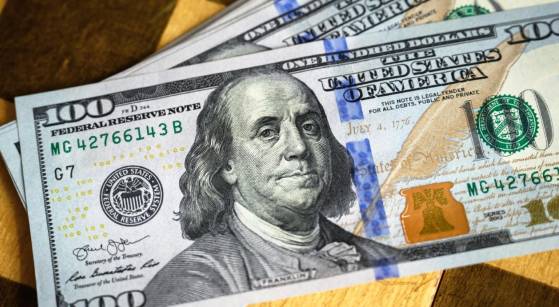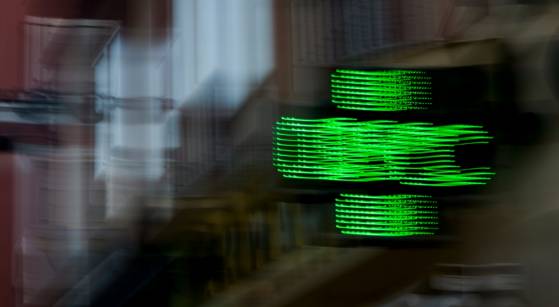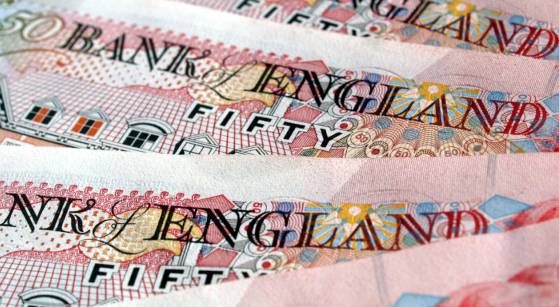Recovery in bank stocks improved market sentiment on Monday.
In Germany, Deutsche Bank shares gained more than 6%.
In the US, First Citizens BancShares jumped more than 50% after agreement to absorb the remains of the Silicon Valley Bank (SVB). Meanwhile, the First Republic Bank recovered nearly 12% yesterday.
Calm, and rally in bank stocks yesterday stabilized the market mood. Gold tipped a toe below $1950 per ounce, while the US 2-year yield flirted with the 4% mark – on bet that if the bank crisis is over, we could go back to our lives and worrying about inflation, again.
The S&P500 closed 0.17% up, while the rate-sensitive Nasdaq fell 0.74%.
Of course, if the banking stress further eases, we should see sovereign yields recover a part of the recent retreat.
Yet, the pricing of recession is now in play, and should keep the upside limited at below the pre-SVB levels, when the Federal Reserve (Fed) was expected to hike the rates all the way up to around 5.5%.
This is no longer the expectation.
That's why the equity markets, which have been relatively resilient to the bank stress – partly due to higher liquidity injected in the market to deal with it, remain vulnerable as earnings estimates will more likely than not revised lower in the foreseeable future.
Bitcoin narrative shifts from safe-haven on bank stress to shaky on Binance stress
Bitcoin fell sharply to below $27K per coin on news that Binance and its CEO were sued by CFTC for allegedly failing to properly register. The firm is said to have allowed its clients to trade derivates since at least 2021, and these derivatives are not subject to American jurisdiction, and that Binance should've registered with the agency years ago, and that they continue to violate CFTC's rules.
The news doesn't call for the end of Binance, the world's biggest crypto exchange, but it could well cool appetite for safe haven flows to Bitcoin – which came along with the bank crisis, reminding crypto investors that cryptocurrency exchanges are not necessarily safer than a bank.
FX and energy
The US dollar index remains under the pressure of softer US yields as mounting recession worries keep the hawkish Fed expectations at bay.
The EURUSD has so far managed to rebound from a critical 50-DMA, near 1.0725, even though Mario Centeno, a member of the European Central Bank's (ECB) Governing Council said that the bank must consider recent financial-market stress when taking decisions on interest rates - an idea that Lagarde simply rejected at her latest press conference saying that the ECB has other tools in hand to deal with a potential stress concerning the banks and liquidity. The door for a further rise to $1.10 remains open for the euro bulls.
In energy, improved sentiment in banks and a legal dispute that halted around 400,000 barrels a day of oil exports from the Ceyhan port in Turkey pushed the barrel of US crude past the $70pb yesterday. The price of a barrel flirted with the $73 level.
Yet, the mounting recession odds and the resilient Russian supply, which partly absorbs the rising oil demand from China, are expected to keep the topside limited into the $75/77 area, where stand the 50 and the 100-DMA respectively.











![Warsaw Stock Exchange: Brand24 (B24) - 1Q23 financial results Turbulent Q2'23 Results for [Company Name]: Strong Exports Offset Domestic Challenges](/uploads/articles/2022-FXMAG-COM/GPWA/gpw-s-analytical-coverage-support-programme-wse-2-6311cd4191809-2022-09-02-11-30-41-63175bda84812-2022-09-06-16-40-26.png)









![Warsaw Stock Exchange: Brand24 (B24) - 1Q23 financial results Turbulent Q2'23 Results for [Company Name]: Strong Exports Offset Domestic Challenges](https://www.fxmag.com/media/cache/article_small_filter/uploads/articles/2022-FXMAG-COM/GPWA/gpw-s-analytical-coverage-support-programme-wse-2-6311cd4191809-2022-09-02-11-30-41-63175bda84812-2022-09-06-16-40-26.png)


